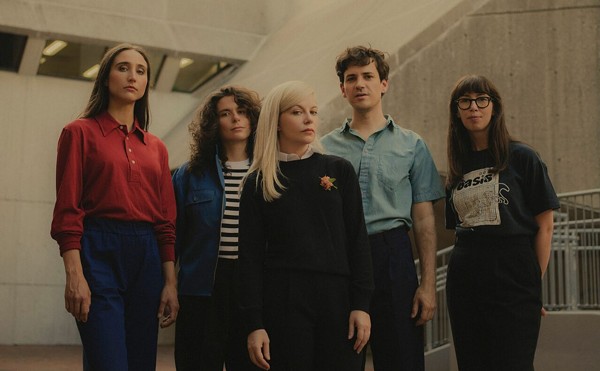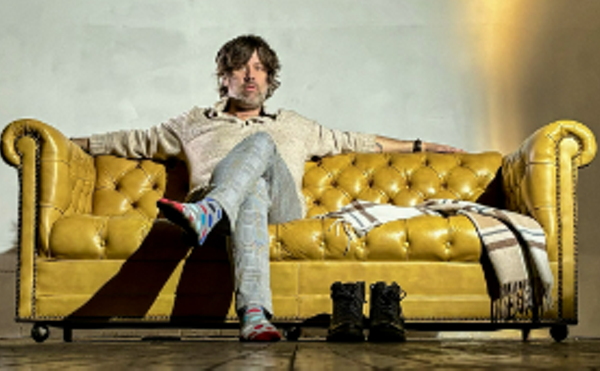"This band was never a cover band," he says via phone as he's driving along the California coast to a show in Santa Barbara. "We made money playing covers that helped pay for our studio. It also helped us hone our chops by playing shows and working on our stage presence. I recommend it. It's a good thing to do. If it was good enough for the Beatles, it's good enough for us. But it's one of those things that you want to do for a short while and then get out of it and never do it again. You can get jaded and lose the plot."
Jeffrey says that every so often, the band will still play a Strokes or Cure song that it used to perform. But the band's been doing just fine with original material — its new album, When It Was Now, is a synth-pop marvel that just keeps on delivering hits and enabling the band to play bigger and bigger venues.
After building the aforementioned home studio in 2009, the band recorded "Trojans" and then independently released it as a single. Buzz began to build immediately for the song that starts with soft vocals and then escalates into a catchy, mid-tempo pop tune that sounds a bit like a more refined version of the Strokes.
"That was our first toe in the water," says Jeffrey when asked about the song's appeal. "It was an honest song in every sense of the word. It was exactly what I wanted to say lyrically at that time. We weren't aiming to please anybody with that song, which ironically is often what helps people connect to music. If the music is what you want and the lyrics are right for you personally, there's a chance other people are going to connect with those emotions. It's hard as a band to know what people like about it."
The song's success came despite the fact that its title could be mistaken for the name of a brand of condoms.
"That has been pointed out to me," says Jeffrey. "I think at least a few people were familiar with the Trojan horse and paid attention during history class. If they didn't, that's fine. If the condom analogy works for them, that's fine."
The group toured for about six or seven months before the album came out and that experience was rather jarring since the group had spent about a year in the studio working on the tunes for what would become When It Was Now, which came out earlier this year and has quickly gained traction.
"It was a baptism of fire going from being holed up in a studio for a year and then touring the entire world," says Jeffrey. "It's an amazing experience. I recommend everybody get into a band and do it. It's really incredible. We'll have gone around the whole country for the fifth time this year now."
The band's sound is very heavy with synthesizers, but not to the extent of, say, a group like Depeche Mode.
"I like to have a blend of organic instruments and synthesizers," he says. "If you find the right sound on a synthesizer, it can really open up a song," he says. "They're incredibly creative instruments."
The band's success is all the more remarkable when you consider it didn't have much support in Adelaide, a city of just more than a million people that, to hear Jeffrey explain it, supports drinking and gambling more than live music.
"A huge percentage of venues were shut down because neighbors complained about the noise," he says. "That was going on a lot and slot machines were legalized and a lot of pubs started making a killing with the slot machines and we don't need a band because we don't make anything off the band. It hurt the music scene. From what I've heard, the scene was much better 20 years ago."
Jeffrey says the band is almost ready to record the next album; he hopes the strategy that worked so well the first time around will work once again.
"We have some songs ready," he says. "We're going to get to the studio next year. We'll have a few months. I don't want to rush. I think the ideal situation for us is to spend a few months writing and recording and then do a bit of a tour to play the songs live and get some perspective. I would like to do that and then take whatever amount of time we need to get it done. We had modest ambitions when we first started. We thought if we could get a couple of hundred people to come a show, we'd be happy. Anything on top of that is a bonus."











